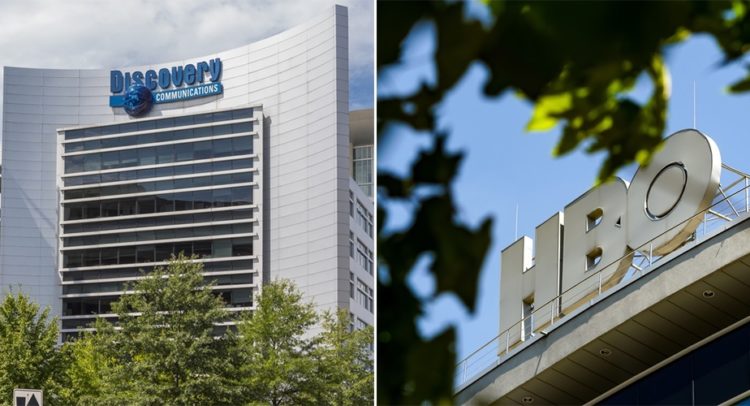By now you’ve heard the news: AT&T (T) is planning to split off and merge its WarnerMedia business, home to HBO Max (of Game of Thrones fame), with Discovery, Inc. (DISCA) and its discovery+ media properties.
Claim 50% Off TipRanks Premium
- Unlock hedge fund-level data and powerful investing tools for smarter, sharper decisions
- Stay ahead of the market with the latest news and analysis and maximize your portfolio's potential
In the companies’ announcement released Monday morning, AT&T and Discovery said the combination will “form one of the largest global streaming players,” combining “WarnerMedia’s premium entertainment, sports and news assets with Discovery’s leading nonfiction and international entertainment and sports businesses to create a premier, standalone global entertainment company.”
From AT&T’s perspective, the deal will essentially split AT&T into two companies. Rump AT&T will receive $43 billion “in a combination of cash, debt securities, and WarnerMedia’s retention of certain debt” to help it become “one of the best capitalized 5G and fiber broadband companies in the United States.” Meanwhile, AT&T’s media properties (HBO, etc.) will spin off to join with Discovery to become a “‘pure play’ content company [with] one of the deepest libraries in the world.”
This “pure play” company, yet to be named say the parties, will come into existence when the deal closes in mid-2022. Shortly thereafter, the parties anticipate the media company to boast $52 billion in annual revenue, “adjusted EBITDA of approximately $14 billion, and an industry leading Free Cash Flow conversion rate of approximately 60%” (which appears to imply annual free cash flow on the order of $31.2 billion) once it has achieved its target of “at least $3 billion in expected cost synergies annually.”
Unsurprisingly, it’s the new-born media conglomerate that investors are fixating on today, with Barrington analyst James Goss, for example, lauding its “vast assets in scripted plus unscripted” television content, and its $20 billion in annual spending on new content.
The combined company, says Goss, will include “the top television studio in terms of output,” “the #2 film studio,” and “a suite of content spanning sports, news, family, scripted and unscripted content,” boasting significant U.S. market share and also “a substantial international presence” that can “reach consumers in over 200 countries globally.” This would all make for, says Goss in a significant understatement, “a highly attractive streaming product.”
Accordingly, even though current Discovery shareholders will control only 29% of the shares of the combined media company, Goss is reiterating his Outperform (i.e. Buy) rating on Discovery shares, and his $50 price target on those shares. (To watch Goss’ track record, click here)
Speaking of those shares, Goss points out that one advantage of the merger will be significant simplification of Discovery stock, as “the three-class Discovery common share structure [is] collapsed into one.” This one class of Discovery stock, by the way, is on track to earn only $2.95 per share this year (down 8% from 2020, when most of the world’s population as stuck at home watching TV). By 2022, however, the year of the merger, Goss anticipates that Discovery will be back on a growth path with or without HBO, et al, earning $3.50 per share and thus growing its profits nearly 19% year over year.
In terms of DISCA’s Street consensus, analysts are split almost right down the middle. Out of 15 total analyst ratings published in the last three months, 7 say Buy while 8 suggest Hold, making the consensus a Moderate Buy. In addition, the average price target of $47.71 amounts to ~39% upside potential. (See DISCA stock analysis on TipRanks)
To find good ideas for stocks trading at attractive valuations, visit TipRanks’ Best Stocks to Buy, a newly launched tool that unites all of TipRanks’ equity insights.
Disclaimer: The opinions expressed in this article are solely those of the featured analyst. The content is intended to be used for informational purposes only. It is very important to do your own analysis before making any investment.

















